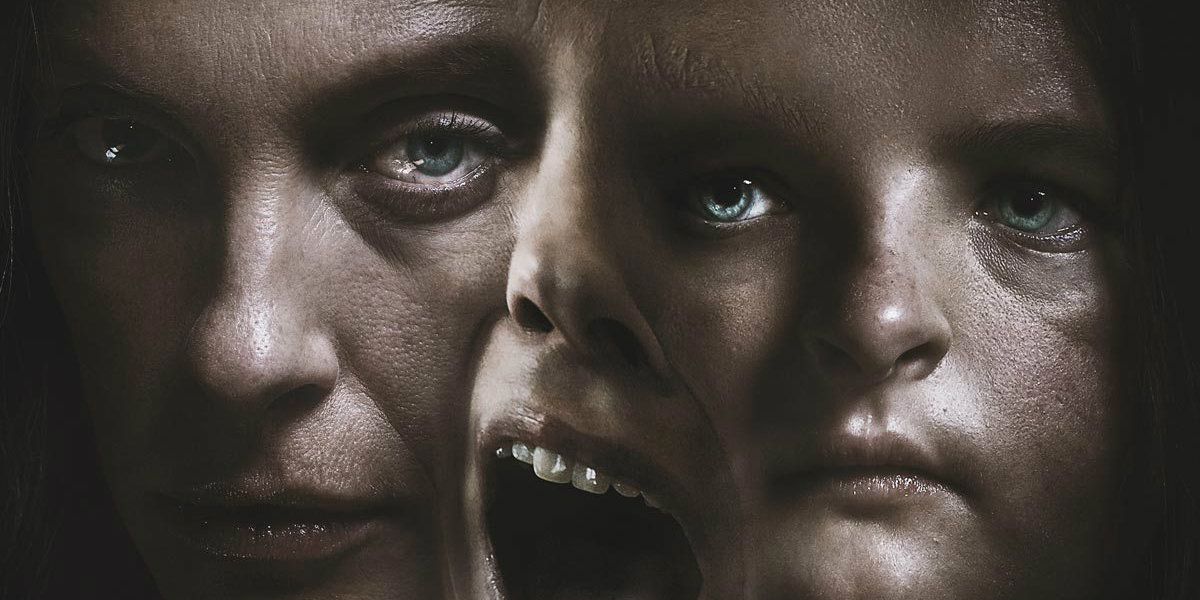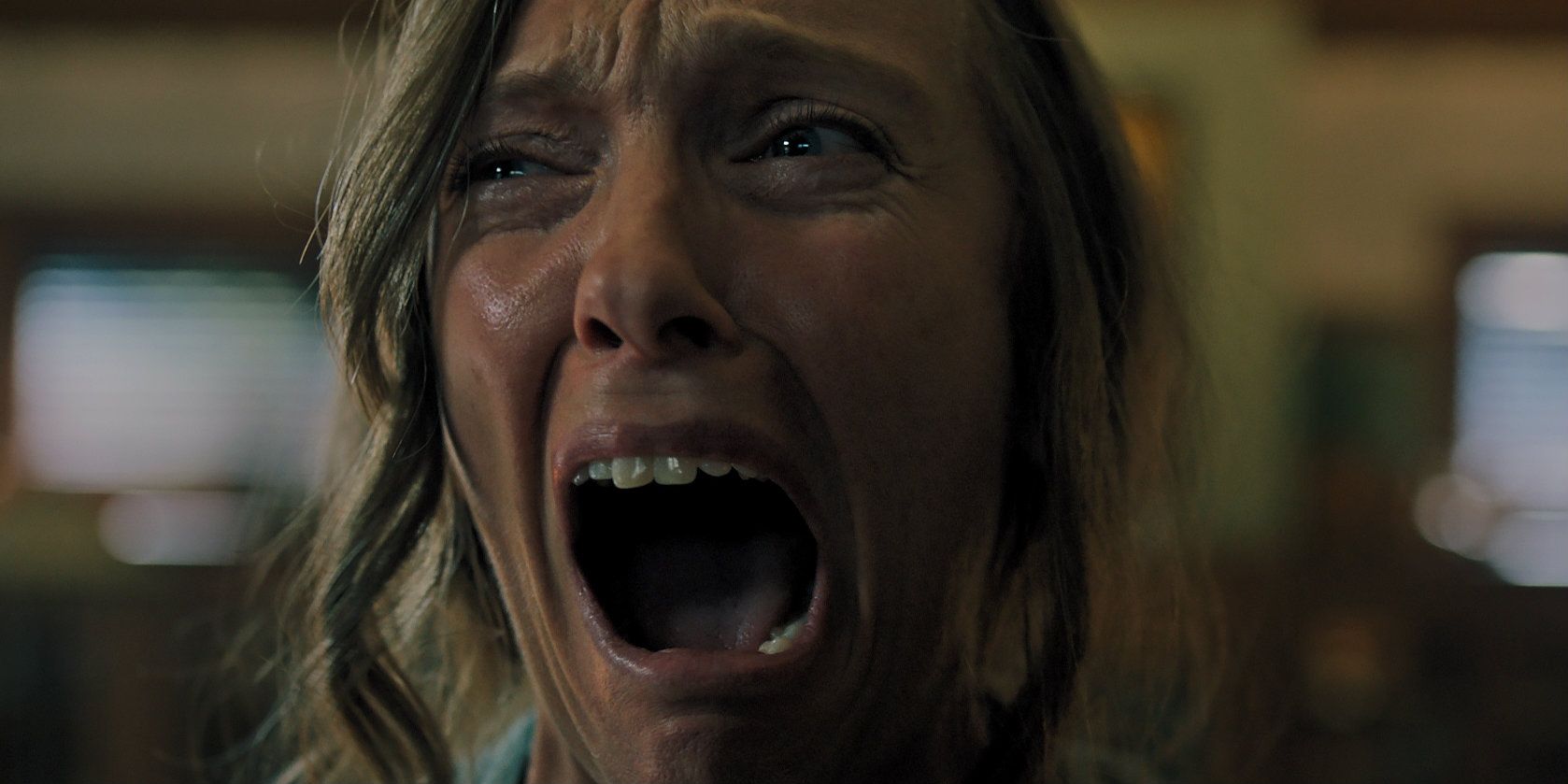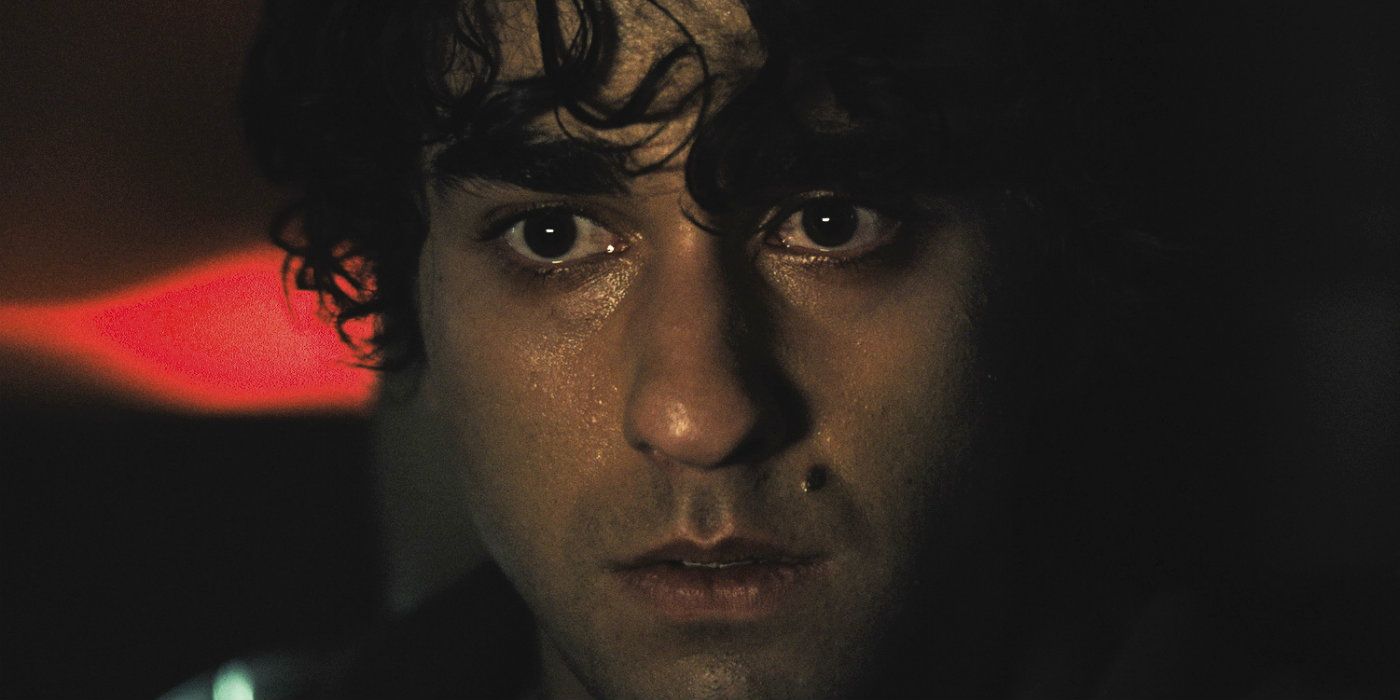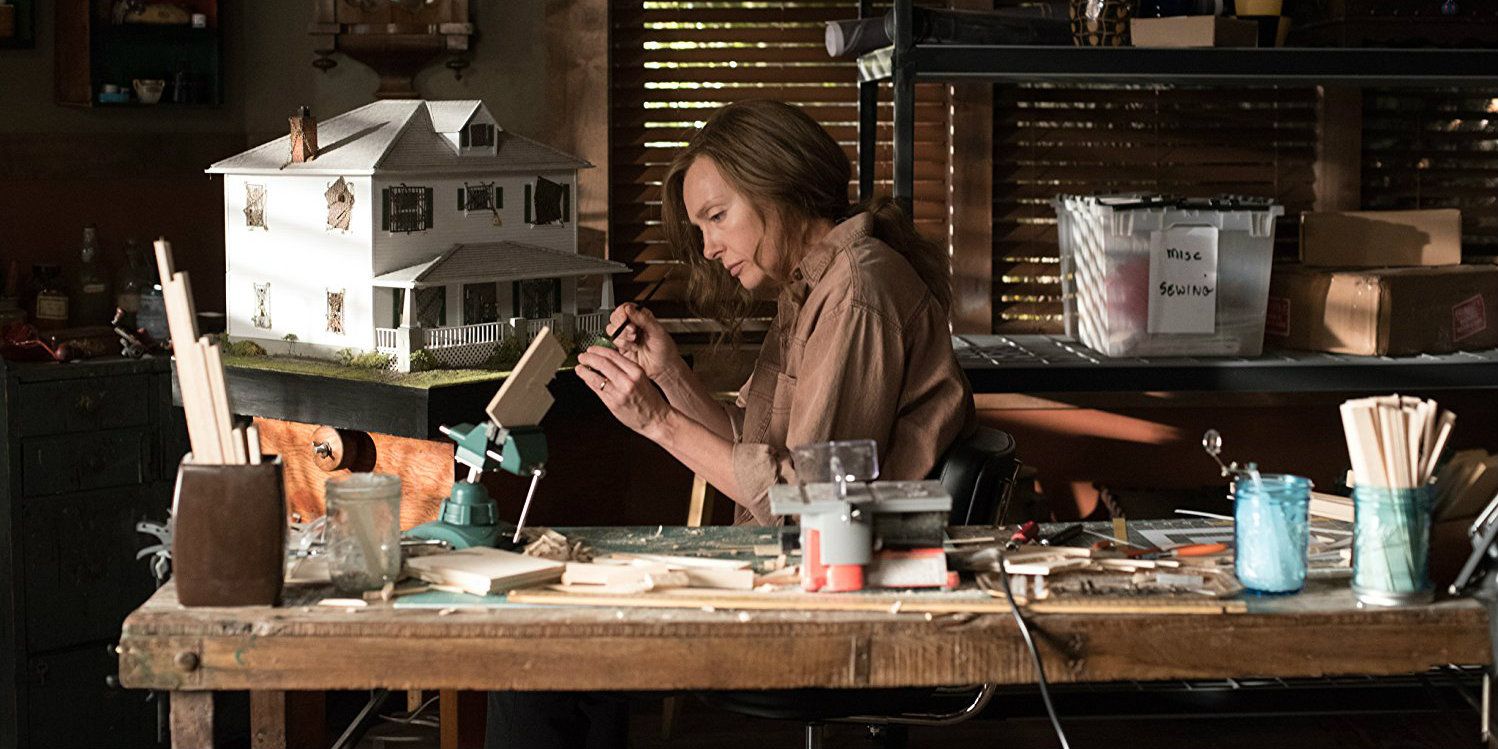Hereditary has more spooky ideas than it knows what to do with, but enough of what it throws at the wall sticks to make for one twisted horror movie.
Ari Aster's feature directing debut Hereditary has been generating buzz since its premiere at the Sundance Film Festival earlier this year, and with good reason - it's a pretty freaky movie. To be fair, Aster has been making waves with his short film work since 2011 and his transition to feature filmmaking only further establishes him as a storyteller with a style that's heavily informed by genre traditions, yet very much his own. Toni Collette, who earned her scream queen stripes nearly twenty years ago on The Sixth Sense, is the anchor that keeps Hereditary on course, even when it threatens to veer off the tracks completely. Hereditary has more spooky ideas than it knows what to do with, but enough of what it throws at the wall sticks to make for one twisted horror movie.
Collette stars in Hereditary as Annie Graham, an artist who makes small-scale models and lives with her husband Steve (Gabriel Byrne), teenaged son Peter (Alex Wolff), and 13-year old daughter Charlie (Milly Shapiro). Following the death of her reclusive mother, Annie cannot escape her feelings of guilt and even has visions of the Graham family's recently-deceased matriarch around their house. Upon deciding to attend a grief support group, Annie finally admits that her family has a history of mental illness and that it contributed to her being estranged from her mother in the years leading up to her death.
When tragedy strikes the Graham family some months later, Annie only sinks deeper into her sorrow and guilt, which manifests itself as hostility towards the rest of her family. After making a failed attempt to attend another support group session, Annie is approached by Joan (Ann Dowd), a woman who has experienced similar personal losses and offers some unorthodox, yet useful ways for Annie to deal with the grievances in her life. However, what at first seems like a possible solution to Annie's woes could wind up being the very thing that fully pushes her family over the edge.
If that plot summary feels somewhat vague, that's intentional; Hereditary's trailers have done a good job of not spoiling the film's surprising plot twists and turns (especially those from its first two-thirds) and the less one knows about Aster's script work here, the better. In terms of directorial style, Aster's approach very much hales from the same Kubrickian school of horror filmmaking that recent additions to the genre like The Witch subscribe to. As such, Hereditary by and large eschews cheap jump scare tactics in favor of building dread and tension through quieter techniques, in the lead-up to the film's most outright disturbing and violent moments. Much like this year's A Quiet Place, Hereditary's use of sound or lack thereof plays an important role in sustaining those feelings of discomfort, even during the more peaceful scenes.
However, what sets something like A Quiet Place above Hereditary is that it has a more clearly defined throughline, when it comes to both the overarching story and its themes. Aster's film, as mentioned earlier, juggles a whole lot of issues here, including matters of how people process (or fail to process) grief and how family dysfunction often arises from deeply rooted problems, in particular those stemming from the parents. Unfortunately, as Hereditary heads into its third act, its subtext becomes increasingly messy and it's less and less clear what the movie is even about, much less what it wants to say or do besides freaking people out. That problem has less to do with Hereditary being over-ambitious and more to do with the film's "everything but the kitchen sink" method for creating scares.
This further makes Hereditary the sort of high-art horror exercise that's easier to appreciate intellectually than necessarily engage with emotionally. Fortunately, the cast does their part to keep the film's characters compelling, with Collette and Wolff especially shining in their roles as one of the more messed-up onscreen mother/son duos this side of Norma and Norman Bates. Hereditary admittedly starts to veer off into camp during its scenes of domestic squabbling, but Collette is always engaging, no matter how poor a job Annie does at convincing those around her that she, in fact, is mentally stable. Meanwhile, Dowd once again proves her worth as a terrific character actor, despite having a relatively small role as Joan.
Aster, working with cinematographer Pawel Pogorzelski (Tragedy Girls) and production designer Grace Yun (First Reformed), heightens the sense of discomfort in the Graham household by framing the film's characters in a way that makes them resemble dolls in a dollhouse. The idea behind this approach seems to be that it creates the sensation that the Grahams are being controlled by forces that are invisible to them, similar to how Annie maintains a strict hold over the figures and interiors of her model work. It's not the most subtle analogy and Hereditary only does so much with it thematically, but it makes for one excellent-looking film that always feels constrictive and unsettling in the best way. The stylized transitions between scenes only further enhance the feeling that the characters here are trapped in a waking nightmare.
At the end of the day, Hereditary mostly succeeds at being what it set out to be - namely, one of the more flat-out messed up horror films in recent memory. It firmly puts Aster's name on the map in doing so, while still feeling like the work of a first-time director who should focus next on trying to juggle fewer balls at once, but without dropping so many along the way. Similarly, it's difficult to say whether Hereditary will have more crossover appeal than indie horror breakout films in years past like The Witch and It Follows; as disturbing as the movie can be, some viewers may find its big WTF moments to be weird and confusing more than scary. All the same, anyone who wants to keep up with this year's conversation about the horror genre will definitely want to spend some time with Toni Collette and her highly dysfunctional (onscreen) family in a theater.
TRAILER
Hereditary is now playing in U.S. theaters nationwide. It is 127 minutes long and is rated R for horror violence, disturbing images, language, drug use and brief graphic nudity.
Let us know what you thought of the film in the comment section!





